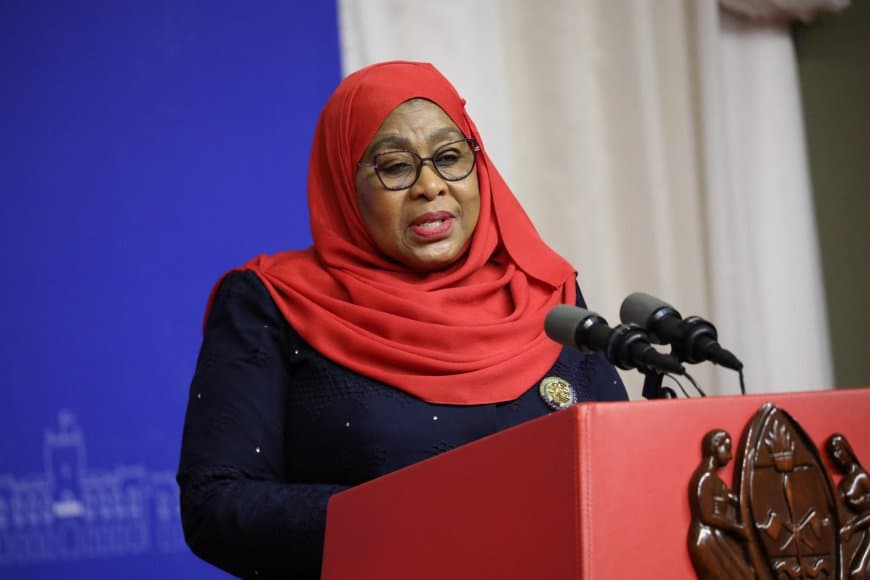We're loading the full news article for you. This includes the article content, images, author information, and related articles.
President Samia Suluhu Hassan's appointment of her daughter and son-in-law to top government posts raises questions of nepotism. For Kenya, the retention of Tanzania's foreign minister signals diplomatic continuity amid heightened post-election regional scrutiny.

Tanzanian President Samia Suluhu Hassan unveiled a significant cabinet reshuffle on Monday, 17 November 2025, a move designed to consolidate her administration for her second and final term. The announcement from State House in Dodoma came in the wake of a contentious general election on 29 October 2025, which was marred by deadly unrest and allegations of irregularities. The new cabinet, comprising 27 ministers and 29 deputy ministers, sees seven former ministers dropped but retains a core group from her previous government.
The most notable appointments include members of President Suluhu’s immediate family and the scion of a powerful political dynasty. The President's daughter, Wanu Hafidh Ameir, a Member of the National Assembly, was appointed Deputy Minister for Education, Science and Technology. Her husband and the President's son-in-law, Mohamed Mchengerwa, formerly the minister for regional administration, was named the new Minister of Health.
In another key appointment, Ridhiwani Kikwete, son of former President Jakaya Kikwete, was promoted from a deputy role to the full Minister in the President's Office for Public Service Management and Good Governance. These appointments have ignited intense debate within Tanzania, fueling accusations of nepotism and the consolidation of power within a close circle of political elites.
For Kenya and the wider East African Community (EAC), the reshuffle provides signals of both continuity and a need for careful observation. Crucially, President Suluhu retained Ambassador Mahmoud Thabit Kombo as the Minister for Foreign Affairs and East African Cooperation. This decision is widely seen as an indication that Tanzania's foreign policy, particularly towards its immediate neighbours and the EAC bloc, is likely to remain stable. Both Kenya and Tanzania recently launched foreign policy frameworks emphasizing a commitment to strengthening regional integration and trade.
The continuity at the foreign ministry is particularly relevant given the recent tensions following the Tanzanian election. In the immediate aftermath, violent protests at the Namanga border post paralysed cross-border trade, a vital economic corridor. Reports of harassment of Kenyan traders and alleged rights violations against some of the estimated 250,000 Kenyans living in Tanzania prompted high-level diplomatic engagement.
On 6 November 2025, Kenya's Prime Cabinet Secretary for Foreign and Diaspora Affairs, Dr. Musalia Mudavadi, held talks with Ambassador Kombo to address the safety of Kenyan nationals. During these discussions, Ambassador Kombo assured his Kenyan counterpart that all foreign residents conducting lawful activities would be protected, and both sides committed to using established diplomatic channels to resolve any issues, in line with EAC protocols. The retention of Ambassador Kombo suggests these lines of communication and commitments are likely to be maintained.
The reshuffle also saw significant changes in other key ministries. Seven ministers were dropped, including former Deputy Prime Minister and Energy Minister Doto Biteko, and the heads of Agriculture, Home Affairs, and Health. New faces include Khamis Mussa Omar, formerly Tanzania's ambassador to China, who takes over the critical Finance docket from Mwigulu Nchemba, who was appointed Prime Minister on 13 November 2025.
President Suluhu also established a new Ministry of Youth Development, to be led by Joel Nanauka, a move seen as a response to frustrations among young people that were believed to have fueled the election-related chaos. Another structural change involved moving the powerful Regional Administration and Local Government (RALG) docket from the President's Office to the Prime Minister's Office to, according to the government, improve efficiency. All new ministers and their deputies were scheduled to be sworn in on Tuesday, 18 November 2025, at the State House in Chamwino, Dodoma.
Keep the conversation in one place—threads here stay linked to the story and in the forums.
Sign in to start a discussion
Start a conversation about this story and keep it linked here.
Other hot threads
E-sports and Gaming Community in Kenya
Active 9 months ago
The Role of Technology in Modern Agriculture (AgriTech)
Active 9 months ago
Popular Recreational Activities Across Counties
Active 9 months ago
Investing in Youth Sports Development Programs
Active 9 months ago
Key figures and persons of interest featured in this article